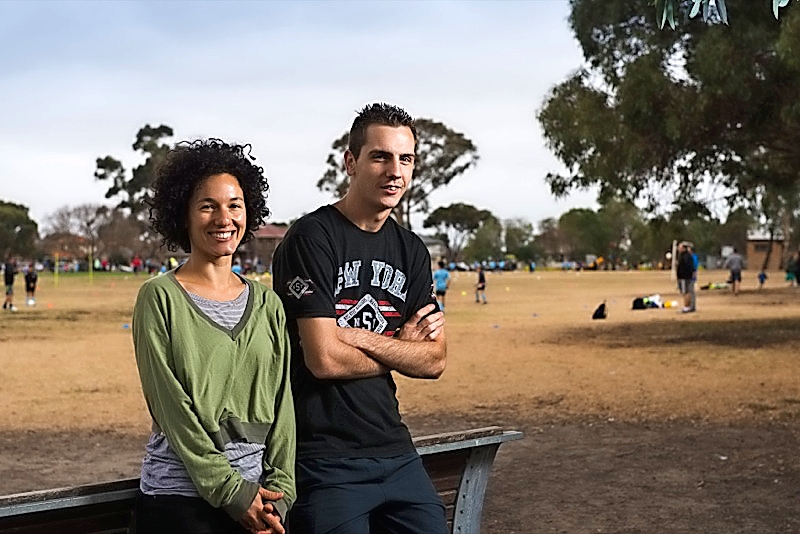Remembering adolescence and how it feels is one of the best prerequisites for someone considering becoming a mentor for young people, Jasmine Scibilia believes.
“It’s ideal [as a role] for university students who don’t have family commitments,” the Thornbury-based archaeologist said.
Passing on tips on budgeting, going for a job, learning to drive and basic car maintenance, house sharing and even how to order what you want at a cafe are some of the basic ways Ms Scibilia has been able to help Luke, who she was matched with almost 10 years ago through Kildonan UnitingCare’s youth mentoring program.
Luke was only 11 at the time, the youngest of a big, extended family in which older children took care of younger ones and everything was shared.
“There were lots of kids and Luke kind of got lost,” Ms Scibilia recalled.
“No one was paying attention to him for good reasons; it was always negatively driven attention. I was there just for him, and he’d never had that before.” The duo (pictured)
still catch up regularly even though the official mentor program stopped when Luke turned 18.
“I get as much out of it as Luke,” Ms Scibilia said. “He and I have done all sorts of activities over the years, going to the basketball, movies, Timezone … but I think the best time we’ve spent together is just hanging out and chatting. Sometimes we’ll take his dog for a walk, shoot some hoops at the local basketball ring or even just go for a drive.
“It’s a really beautiful thing to share a friendship with a young person that is not based on any formal connection – I’m just there for Luke and I think that kind of attention and investment in a person can be truly rewarding and beneficial for everybody.”
Luke, now 20, is well on his way and plans to study building at TAFE.
But there is a too-long list of young people deemed to be “at risk” or “high risk” who need a mentor and friend, especially in Melbourne’s northern realms.
Kildonan UnitingCare’s chief executive Stella Avramopolous said the agency faced a critical shortfall of mentors and needed more people with flexibility, patience and reliability to help bring positive influences into the lives of young people.
“Ninety per cent of young people who have a mentor have a more positive view of the future; 81 per cent increase their school attendance and 78 per cent are less likely to use drugs or alcohol after having gone through the program,” she said.
Screening of mentors is vigorous and ongoing.
» Kildonan UnitingCare’s mentor program: 8401 0100 or info@kildonan.org.au







